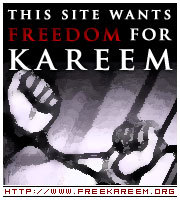Islamic Fundamentalism & Political Correctness
The English press in India always prided in being secular (read pro-minority). Now at least the secular right among them have started to see and understand the message on the wall that was there for a long time now. Dilip Padgaonkar has captured this 'enlightenment' of the secular press in the following article.
Most editors and columnists writing in the English-language press have seldom missed a chance to assert their liberal and secular credentials. (I should know; I’m one of them.) For decades they berated Hindu belligerence but chose to remain coy when they had to contend with Muslim fanaticism. Out of a heightened sense of political correctness, they reckoned that the extremism of the majority community was far more pernicious than the extremism of the minorities. The reason? It would spell the advent of Hindu fascism.
In the past fortnight however more and more liberal voices have begun to denounce Muslim hot-heads, and their ‘secular’ friends in the political establishment, with unabashed vigour. The former are seen to pursue an ummah-driven agenda while the latter are believed to engage in a cynical exercise to build their vote banks. And both are accused of neglecting the genuine problems plaguing the Muslim community: education, acquisition of skills, job opportunities, gender equality…
This shift in the attitude of liberals began in earnest after the 9/11 outrage in the United States and continued to gather momentum after every successive terrorist attack in the world. Willy-nilly a link was established between the suffering heaped on innocents abroad and the depredations of the terrorists in India. At stake in both cases was the internationalisation of jehadism.
It therefore stood to reason that the US-led ‘war on terror’ would find favourable echoes in India. And this, over and beyond the confines of the Sangh Parivar. That the US tied itself up in knots in the war did serve to dampen India’s initial response. One evidence of this was the country’s refusal to be associated with the emergence of Islamophobia in the West.
What seems to have got the goat of the liberals were the reactions of Muslim hot-heads and of their ‘secular’ mentors on three issues: the controversial cartoons of Prophet Mohammad, India’s stance on Iran’s nuclear designs and the Bush visit. On the first count, they argued in substance, India had nothing to do with the cartoons. Indeed, no public figure and no newspaper had endorsed the view that the controversy was all about free speech.
Against this background, the statement of a minor Muslim minister in Uttar Pradesh publicly offering a hefty reward to anyone who beheaded the Danish cartoonist came as a rude shock. Could there have been any doubt at all that this was incitement to murder? The minister received no reprimand, let alone marching orders, from Chief Minister Mulayam Singh Yadav.
The conjunction of ummah-driven politics and vote bank-driven politics became all the more apparent on the Iran issue. Until now our foreign policy has by and large not fallen prey to domestic political battles. But now a section of the citizenry, guided by religious considerations, thought it fit to challenge India’s policy on Tehran’s obduracy on nuclear inspections.
Matters reached a head when the same considerations were brought into play to protest against the Bush visit. Liberal opinion regarded the angry demonstrations staged during the presidential visit as a flagrant attempt to give pan-Islamic solidarity precedence over the national interest.
Against this backdrop, the terrorist attacks in Varanasi proved to be the proverbial last straw. Liberal opinion was convinced that the upsurge of Muslim radicalism, loudly claiming its affinity with the ummah, and the cachet of respectability it received from certain ‘secular’ political formations, had created an altogether novel situation for the country. It portended an eruption of communal tensions which would slow down economic growth and damage the nation’s security interests.
But here is the rub. Sensing the shift in the national mood, the BJP was quick to galvanise public opinion in favour of minorityism. Lal Krishna Advani’s sees his proposed rath yatra as the effective stratagem to precipitate his party’s return to power. This could well be his last chance to fulfil his prime ministerial ambitions.
Given the mood in the country, the stratagem might work. But at what cost? Should the rath yatra raise the communal fever, should it lead to riots and more terrorist attacks, you can as well bid good-bye to sustaining the GDP growth rate of recent years. And you can also say farewell to the fund of good will India enjoys in the international community, including in many Muslim countries.
The liberal hope now is that India will reject Hindu bigotry and Muslim fanaticism alike. Both threaten the idea of India which the world now celebrates with such gusto. But political correctness has well and truly run out of steam.[DNA]






No comments:
Post a Comment